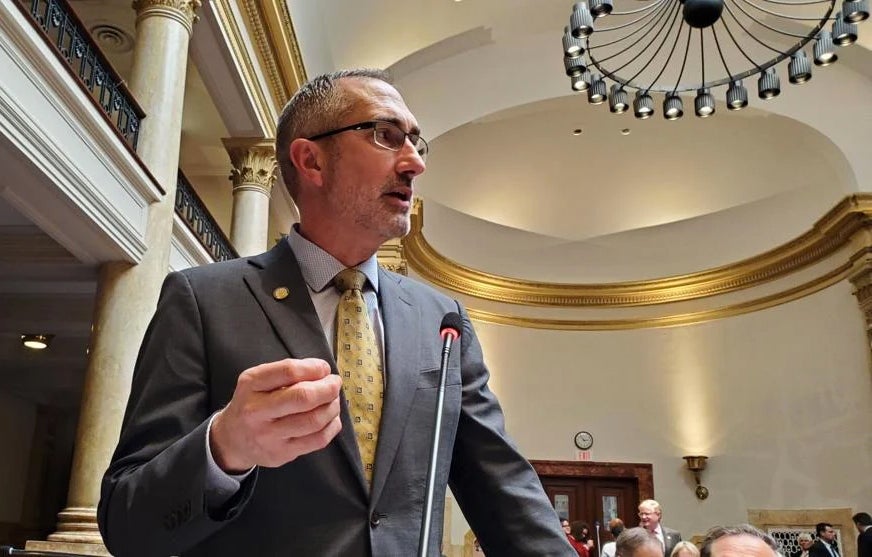Senate passes bills to reform juvenile justice
Published 8:22 am Friday, March 10, 2023

- Senate President Pro Tem David Givens spoke on a measure that would allow a third party to conduct a performance review of the state’s juvenile justice system. Kentucky Today photo by Tom Latek
BY TOM LATEK
Kentucky Today
The Kentucky Senate on Tuesday unanimously passed two bills dealing with reforms to the state’s juvenile justice system, which some lawmakers described as being in crisis and in need of solutions.
Senate Bill 158, sponsored by Senate President Pro Tem David Givens, R-Greensburg, would direct the Kentucky State Auditor’s office to enter in a contract with a third party to conduct a thorough performance review of the Department of Juvenile Justice (DJJ). The measure describes the scope of the review and provides $500,000 for the review, to be completed by Oct. 15.
Givens said problems that had been festering for decades came to a head last year.
“Issues grew into a true crisis when we saw riots at facilities, youthful correction officers sent to the hospital, State Police having to be called in to try and restore not just control, but any sense of order in these facilities across our Commonwealth.”
Senate Bill 162, sponsored by Sen. Danny Carroll, R-Benton, is a full-scale overhaul of the juvenile justice system.
Provisions include:
• Allocating over $55 million in the next two years to support comprehensive reforms within the system.
• Transitioning DJJ back to a regional model while continuing to segregate males and females, and violent and non-violent offenders.
• Requiring DJJ to enter into sufficient contracts to ensure the availability of institutional treatment for children with severe emotional disturbance or mental illness as soon as practical.
• Requiring the Kentucky Department of Medicaid to take steps to provide benefits to eligible detained children.
• Establishing staff retention measures and addressing workforce needs by implementing a Youth Worker-R program to bring retired workers back into facilities , allowing previously resigned staff to return with department approval, and providing employee professional development opportunities.
“Provisions of Senate Bill 162 are pointed and will be valuable in repairing the broken culture within our DJJ facilities where, until now, there’s been a reluctance to accept accountability,” said Carroll. “As the legislature leads in statutory reforms, we must remember the buck has to stop somewhere. Unfortunately, stories as recent as today show a lack of transparency and lackluster communication that has sadly become the norm within DJJ.”






